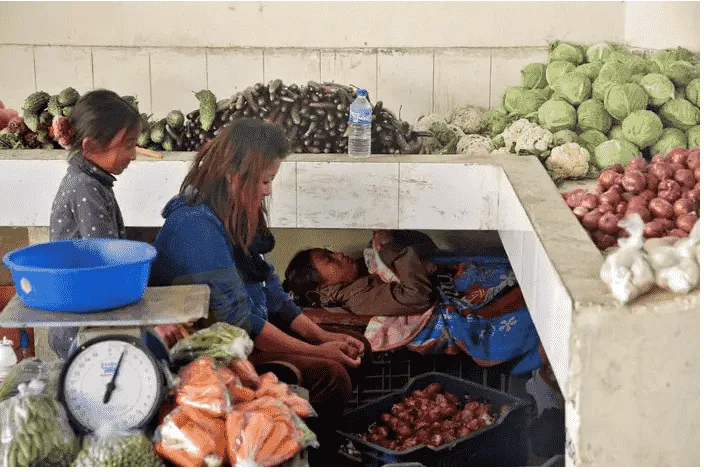简体中文
繁體中文
English
Pусский
日本語
ภาษาไทย
Tiếng Việt
Bahasa Indonesia
Español
हिन्दी
Filippiiniläinen
Français
Deutsch
Português
Türkçe
한국어
العربية
Bhutan considering steps to avoid fallout of falling forex reserves -minister
Abstract: Bhutan is considering several steps to contain adverse impacts on the economy following a fall in foreign exchange reserves, its economic affairs minister said on Thursday, after the government warned residents about possible curbs on imports.

Like many energy importing countries in South Asia, Bhutan, with a population of less than 800,000, is confronting the effects of soaring oil and grain prices due to the war in Ukraine, just as its economy is reeling from the impact of the pandemic, including a strict zero-COVID policy that has barred foreign tourists for the past two years.
“Steps are being looked into to avoid any serious fallout,” Loknath Sharma, the countrys economic affairs minister told Reuters, adding the government was closely watching the impact of dwindling foreign exchange reserves.
However, he declined, to say what steps could be taken.
Earlier this month, Bhutan increased cash bonuses paid to residents receiving remittances from overseas to 2% of each remittance from 1% previously, as part of its efforts to attract foreign currency.
Foreign exchange reserves declined to $970 million at the end of December from $1.46 billion in April 2021, data released by the Royal Monetary Authority of Bhutan earlier this month showed, while total external debt rose to $3.2 billion from $2.7 billion before the pandemic.
The government has designed a three-phase plan to deal with the emerging economic situation, the state radio Bhutans Broadcasting Service (BBS) reported on Wednesday, quoting Prime Minister Lotay Tshering.
In the first phase, the government will stop importing non-essential commodities such as snacks and biscuits. The second phase would include a ban on the import of more important goods and in the third phase, only the import of essential items will be allowed, BBS reported.
Bhutan, wedged between China and India, owes a debt of over $2.2 billion to India, its major trading partner, and about $1 billion to financial institutions including the World Bank and Asian Development Bank.
Bhutans imports rose to 90.23 billion ngultrums ($1.13 billion) in 2021 from 66.64 billion ngultrums in 2020 while exports rose at a slower pace, leaving a trade deficit of 32.23 billion ngultrums ($404 million).
Sharma said current forex reserves would cover imports for about 15 months, meeting a constitutional requirement to maintain reserves to cover at least 12 months of imports.
Local traders said rising fuel imports, amounting to nearly one-fifth of total imports, was a major worry, along with imports of passenger vehicles, while tourism earnings, crucial for the economy, have yet to pick up after two years of pandemic.
Bhutan said in June that it will reopen for international tourists from September.
($1 = 79.7570 ngultrums)

Disclaimer:
The views in this article only represent the author's personal views, and do not constitute investment advice on this platform. This platform does not guarantee the accuracy, completeness and timeliness of the information in the article, and will not be liable for any loss caused by the use of or reliance on the information in the article.
Read more

Top 10 Trading Indicators Every Forex Trader Should Know
Master the top 10 Forex trading indicators to analyze real-time Forex quotes, trends, and market signals. Learn strategies to boost accuracy and avoid mistakes.

Geopolitical Events: What They Are & Their Impact?
You've heard many times that geopolitical events have a significant impact on the Forex market. But do you know what geopolitical events are and how they affect the FX market? Let us learn about it today.

Why Do You Feel Scared During Trade Execution?
Trade execution is a pivotal moment for traders. It is when analysis turns into action, and potential profits or losses become reality. However, for many traders, this moment is accompanied by fear. Why does this happen, and how can you address it?

WikiEXPO Global Expert Interview: Simone Martin—— Exploring Financial Regulation Change
In the midst of financial innovation and regulation, WikiGlobal, the organizer of WikiEXPO, stays abreast of industry trends and conducts a series of insightful and distinctive interviews on pivotal topics. We are delighted to have the privilege of inviting Simone Martin for an in-depth conversation this time.
WikiFX Broker
Latest News
Volkswagen agrees deal to avoid Germany plant closures
Geopolitical Events: What They Are & Their Impact?
Top 10 Trading Indicators Every Forex Trader Should Know
WikiEXPO Global Expert Interview: Simone Martin—— Exploring Financial Regulation Change
TradingView Launches Liquidity Analysis Tool DEX Screener
MultiBank Group Wins Big at Traders Fair Hong Kong 2024
'Young investors make investment decisions impulsively to keep up with current trends' FCA Reveals
Why Do You Feel Scared During Trade Execution?
CySEC Settles Compliance Case with Fxview Operator Charlgate Ltd
Malaysian Influencer Detained in Taiwan Over Alleged Role in Fraud Scheme
Currency Calculator


